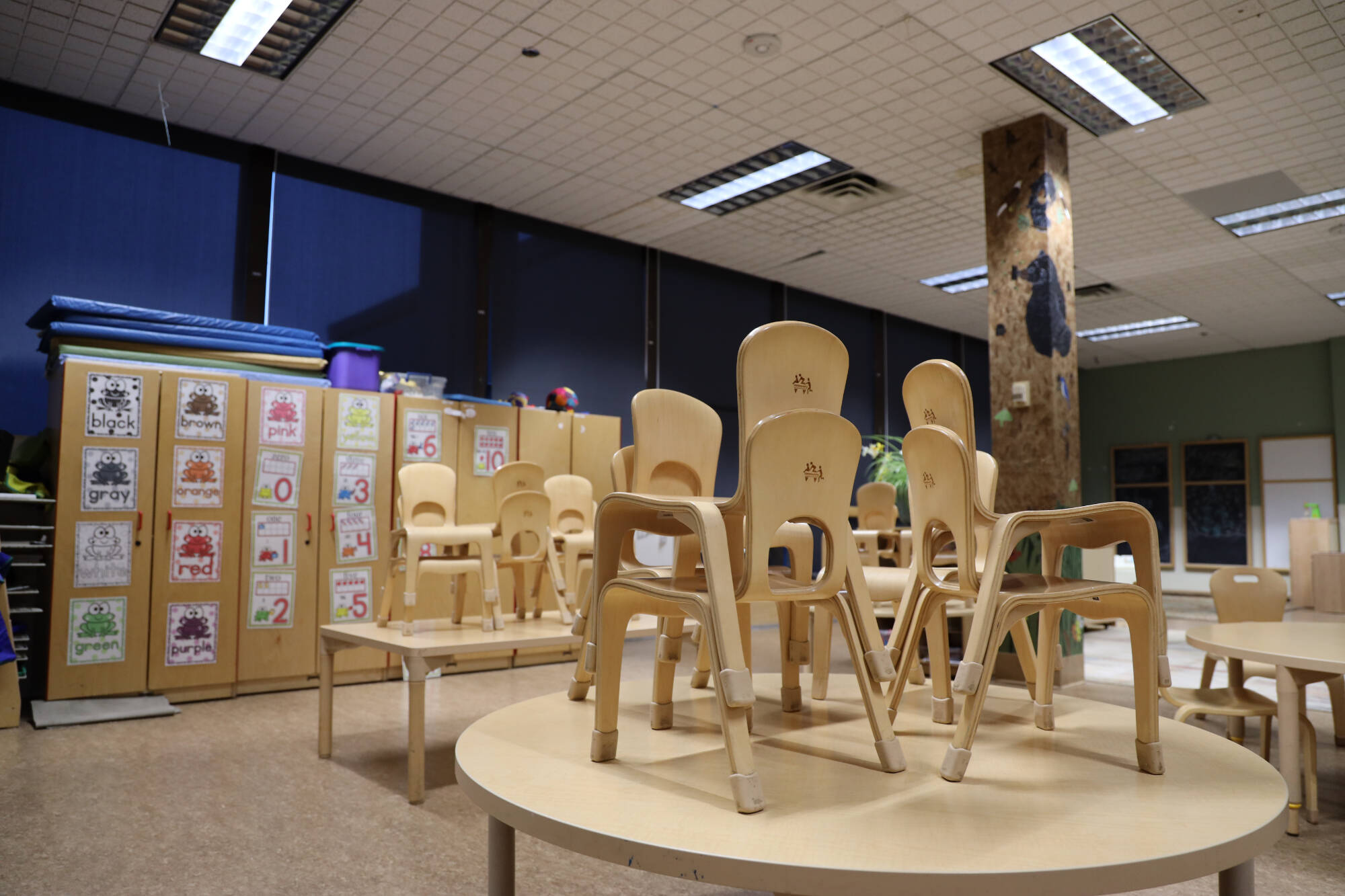Members of Alaska’s House Finance Committee struggled with a vote to pass a budget amendment that would go far to improve the historically low wages child care providers earn in Alaska. Members of the full body will likely have one more opportunity to make things right next week when floor votes are held on amendments to the state’s operating budget.
An amendment introduced to bolster the child care sector by adding $7.5 million to be used for provider wages fell short by a single vote despite having bipartisan support. The amendment originally asked for $15 million, the true amount needed to lift up child care providers.
From 2018 through the first half of 2021, Alaska lost 21% of its child care providers, making most of the state a “child care desert,” a term used to describe a region with inadequate child care.
While concerns about the revenue forecast are clear and warranted, failure to take immediate action to address the child care crisis is only going to worsen our economic problems. Alaska’s worker pool is shrinking, impacting every industry from the service sector to financial to government. A 2021 U.S. Chamber of Commerce study found that Alaska’s insufficient child care capacity is costing the state and local businesses $165 million annually.
Alaskans see this impact daily. The largest school districts in the state can no longer bus students to school without interruption because they lack drivers. Some Anchorage schools can no longer provide hot meals to students because of unfilled cafeteria positions. Everything from medical offices to financial institutions to general contractors are generating backlogs because they can’t find employees to do the work. All of these problems trace back to the strength and availability of child care across the state.
Since 2010, young families have been leaving Alaska in record numbers. In that time, the number of children ages 0-4 decreased by 16%, and the number of adults ages 20-29 dropped by 14%. The largest decrease has occurred in the last two years alone. Lack of child care is partly to blame for the exodus. Multiple state leaders this year have publicly expressed a desire to make Alaska the best place to raise a family. A robust child care system is a foundational support for families, and Alaska must do all it can to build one.
There’s only one solution to address this crisis in the short term, and that is to fund a state subsidy to increase provider wages immediately. Following the COVID-19 pandemic, many businesses realized they had to increase wages to compete for workers. Jobs that once paid $14-$15 per hour now pay 30% more. Child care worker wages are currently on the decline, however, after peaking at $15 per hour in 2020.
To those who believe child care businesses should just increase tuition costs for families to improve wages for their employees, we ask them to consider this statistic: around 61% of parents who rely on child care qualify as low-income, according to the U.S. Chamber of Commerce Foundation. Providers simply cannot, within the current business model, compete with other sectors without pricing out families who need it most.
A $15 million increase to the currently administered Child Care Grant Program could increase provider wages from $14 per hour to more than $18, enabling child care businesses to once again compete for employees and expand availability for families. Without legislative action during this session, more facilities will close, the crisis will worsen, and the cost to Alaskans will grow.
Additional public funding that can be used to increase provider wages must be viewed as an investment in the state’s economy to get parents back into the workforce and demonstrate that our great state is a place willing to invest in young families.
Contact your House representative and tell them how the lack of child care is impacting your business, family and community, and encourage them to vote in support of additional child care funding. The state can’t afford to circle back on this issue in 2024. More and more child care centers are permanently shuttering each month, and the cost to fix this crisis will only grow.
• Charles L. Westmoreland is a writer, researcher, and former managing editor of the Juneau Empire. Blue Shibler is executive director of the Southeast Alaska Association of the Education Young Children, and previously served as administrator for Discovery Preschool. Both reside in Juneau. Columns, My Turns and Letters to the Editor represent the view of the author, not the view of the Juneau Empire. Have something to say? Here’s how to submit a My Turn or letter.

